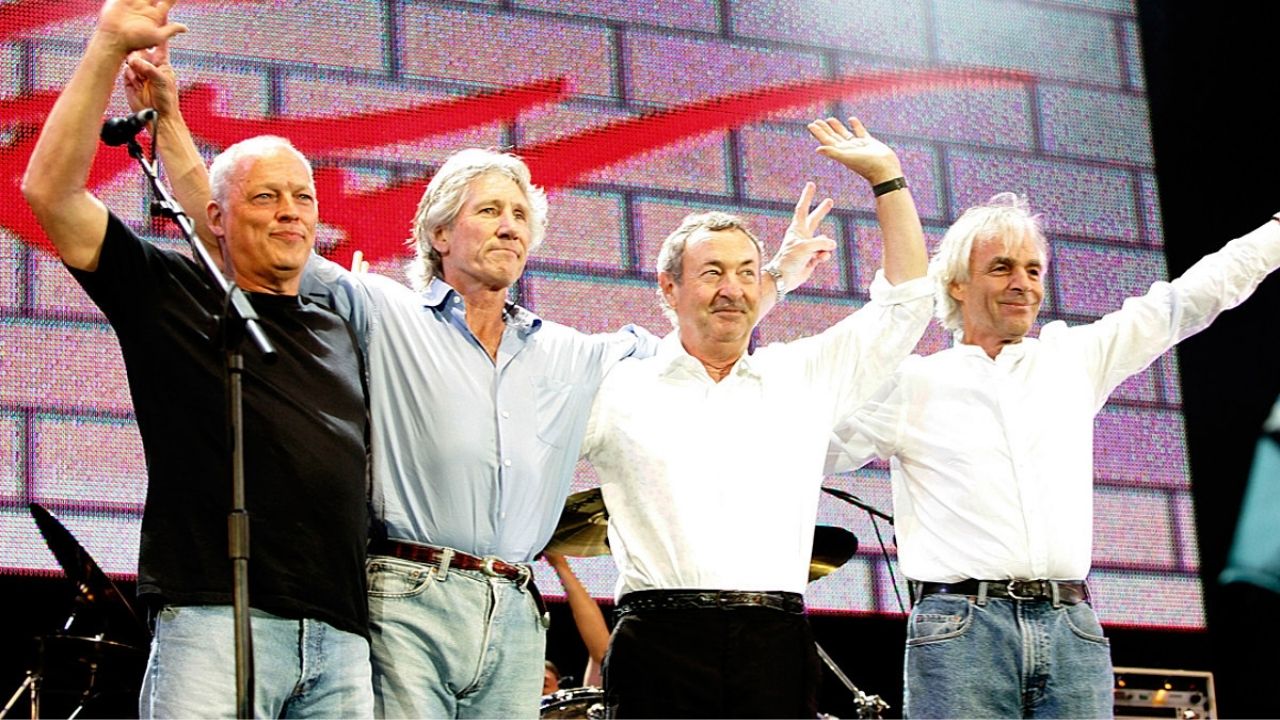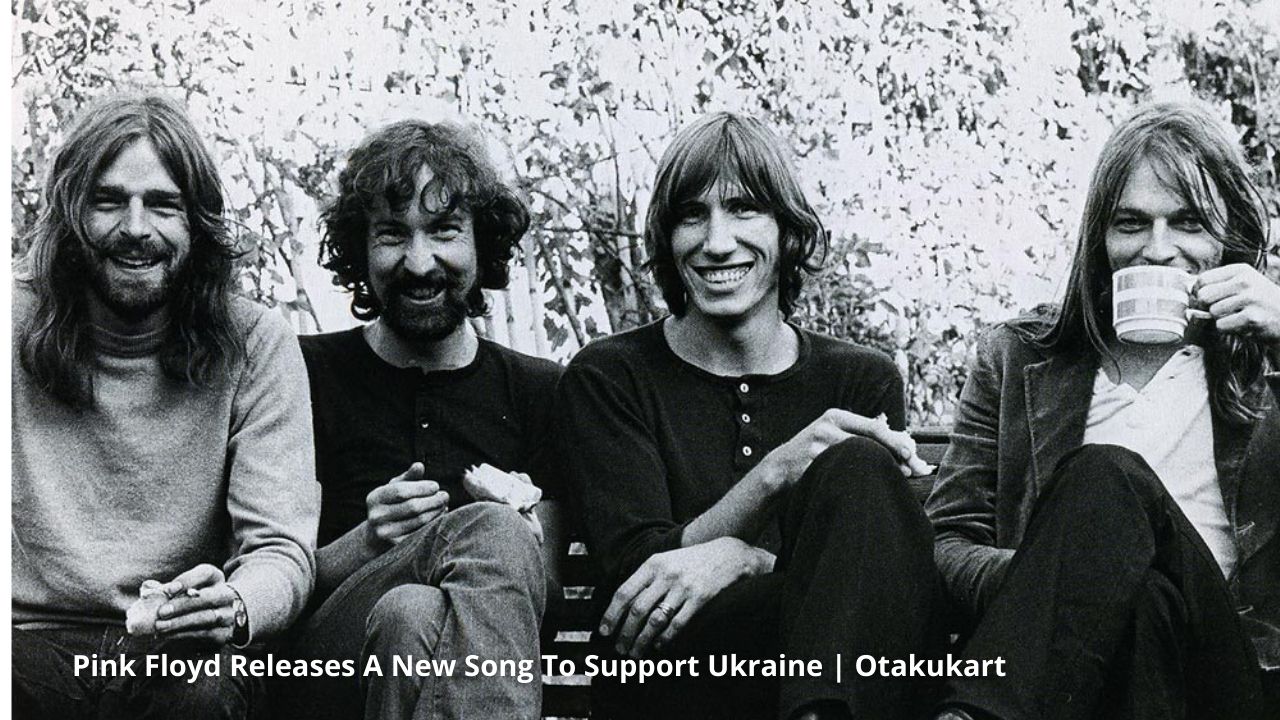The legendary rock band Pink Floyd reunites for a brand new original song in support of Ukraine. The new song titled “Hey, Hey Rise Up” takes inspiration from an Instagram video of Boombox band’s lead singer Andriy Khlyvnyuk.
Originally, the Instagram video saw Khlyvnyuk singing a Ukrainian Folk song from World War I era called “The Red Viburnum In The Meadow,”. Khlyvnyuk’s video from central Kyiv became an unofficial anthem during the Ukraine-Russia War and soon led the legendary rock band to their new original.

New Original Song By Pink Floyd Out Now
The lead vocalist and guitarist of Pink Floyd, David Gilmour, believed it was a powerful moment. This saw the band coming together to record “Hey, Hey Rise Up” on March 30. Andriy Khlyvnyuk’s vocals are part of the new single. Gilmour picks up the guitars with Nick Mason on his drum duties. Long-time member Guy Pratt is on bass and Nitin Sawhney on the keyboard.
The original song “The Red Viburnum In The Meadow” ends with the words that mean “Hey, Hey, Rise Up and Rejoice”. Thus, the title of the new Pink Floyd Song. “Hey, Hey Rise Up” is the first original song from Pink Floyd since their 1994 album, “The Division Bell”. Check out the official video for the song directed by Mat Whitecross below.
Gilmour has further talked about how the song came to be. He suggests the band, much like the word, feel the fury and frustration of an independent, peaceful democratic country being invaded by a major superpower. With this song, Pink Floyd wants to show support to Ukraine in such a way that it will tell the world that it is wrong.
David Gilmour played the song to Khlyvnyuk, who is now in a hospital due to a shrapnel injury. Gilmour hopes to work with him in person soon in the near future. All the proceeds of the song go to Ukrainian humanitarian relief. The band hopes their new song in support of Ukraine will receive worldwide publicity so that they can raise funds for humanitarian charities and raise morale.
Also Read: Why Did Pink Floyd Break Up & What Was Their Conflict?




